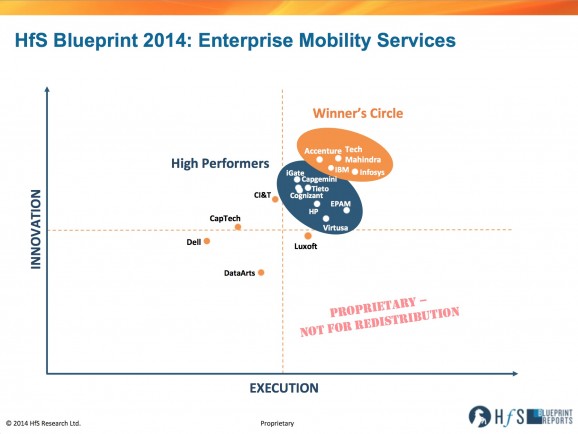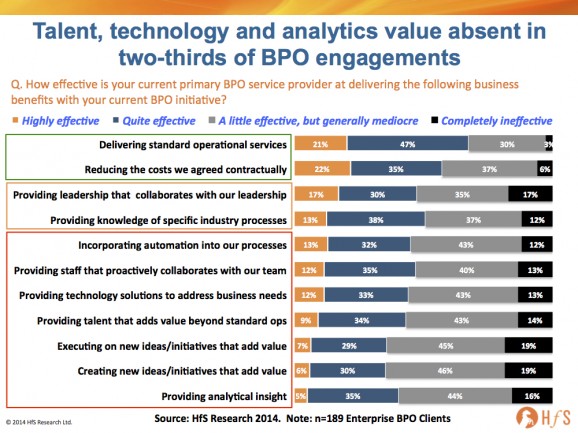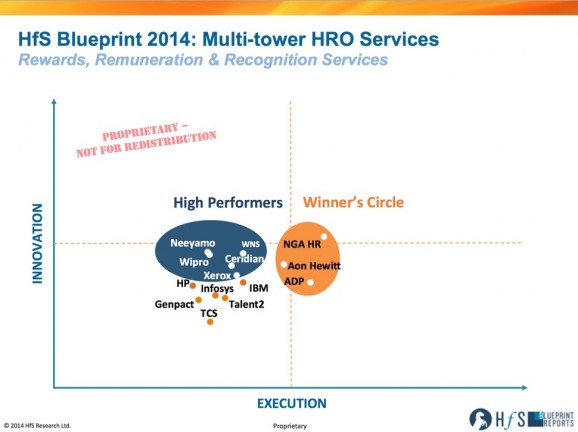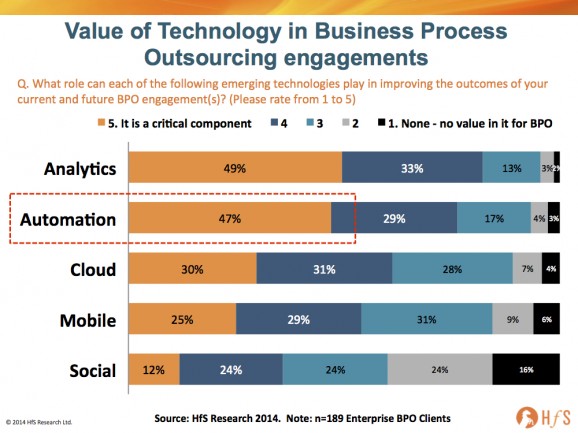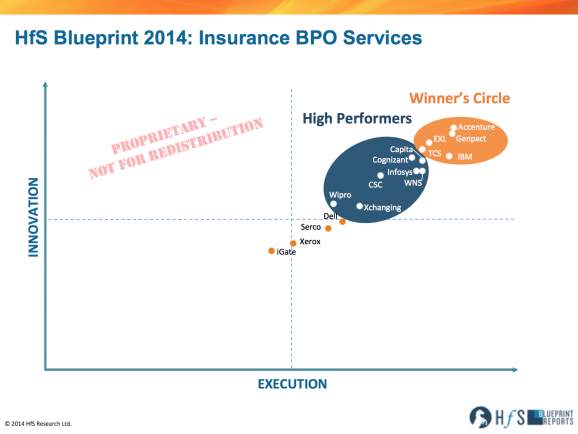Month: February 2014
Four make Winner’s Circle for Enterprise Mobility Services: Infosys, Tech Mahindra, IBM and Accenture
HfS launches the first Blueprint Report focused on Enterprise Mobility Services, where Infosys, Tech Mahindra, IBM and Accenture made the Winner's CircleRead More
Are some “independent” analysts the worst offenders of pay-to-play?
One practice I seem to be exposed to everyday is the blatant opinionating from a host of "independent" analysts/bloggers/pundits/consultants /influencers/journalists etc who all make a living from the dirty vendor marketing dollarRead More
BPO will continue to fail miserably… without a mindset to embrace change, develop talent and tech-enable processes
Our new "Technology in BPO" study reveals that this industry is on the brink of a significant, radical overhaul to its very core value propositionRead More
Three make Winner’s Circle for Multi-tower HR Outsourcing: NGA, Aon Hewitt and ADP
HfS announces the first Blueprint Report in HR Outsourcing, with NGA, Aon Hewitt and ADP making the Winner's CircleRead More
Automation: it’s about solving business problems, stupid!
We asked HfS' Charles Sutherland to share his views on what is really happening with process automation and why is shouldn't be confused with technology automation theories of yesteryearRead More
Five make Winner’s Circle for Insurance BPO: Accenture, Genpact, EXL, IBM and TCS
For the large insurers, many could go out of business if it wasn't for the savings and efficiencies generated by maturing BPO delivery model - let's take a look at the industry's first meaningful analysis of the innovation and execution capabilities of all the leading service providersRead More


